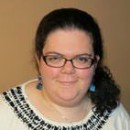- A
- A
- A

Learning to Love in Any State of Being
They say love finds you when you stop looking for it, and maybe that’s so cheesy it makes you nauseous, but at least for me, it turned out to be totally true. I definitely didn’t wake up on July 23, 2011 declaring it as the day I’d meet my first love. Actually, it was the furthest thing from my mind. My summer camp was hosting an alumni day, so I figured I’d get a little nostalgic and catch up with old friends. I was mid-hug with someone when I noticed him between the schoolhouse and the dining hall. Golden hair and light blue eyes and a heart-stopping smile. There was probably harp music playing. (Okay, I know, you get the point.) He might have made my knees wobbly, except I was sitting in a wheelchair. The only thing I worried was a problem? So was he.
As it happens, my old rolling ground was the Southampton Fresh Air Home, a camp for kids with disabilities. Growing up, I’d spend 95% of my life in mainstream environments around non-disabled kids, and then my exposure to disability would jump from 0 to 60 for a few weeks each summer when I’d head off to camp. I loved camp, but I spent a lot of the time confused about why I felt so at ease around other disabled people there, whereas being near other disabled people in any other public place made me uncomfortable.
Before meeting him (let’s call him “Theo”), I’d never been presented with the prospect of a serious relationship with another wheelchair user. I had a few camp crushes, but back in the real world outside of camp, my gut instinct was generally to stay away from anyone using mobility aids, because I hated how being around another visibly disabled person felt like it called more attention to my own disability.
As I got older and took interest in the idea of an actual relationship, I determined the only type of guy I wanted to date was someone able-bodied who also accepted my disability as part of me. I wanted a non-disabled boyfriend because I believed that would be a sign I’d made it in the world. I believed that would mean I found full acceptance, that I fit neatly into the folds of what was right in society. I believed that would mean I was worth something.
You should all be sounding the hypocrite alarm by now. I expected acceptance in a romantic relationship, but I refused to accept disability as part of someone else. Does this make any sense to you? No? Me neither, speaking now as someone who decided to work through these issues and date a wheelchair user.
This is painful for me to write about, both because my hypocrisy is totally embarrassing and because Theo and I broke up and haven’t talked in well over a year, but it’s an issue I believe cannot go unspoken. I wasted years of my life internalizing ableism and discrimination, fearing disability and trying to hide from it. And as I’ve since learned, I’m not the only one who has experienced these feelings. Turning societal prejudice against yourself, and against those whose lives may be much the same as yours is all too common among disabled people. We are bombarded by social cues demanding we minimize our disabilities to try to make people forget we’re disabled at all. But just because disability might make someone else uncomfortable, doesn’t mean we should be uncomfortable with it ourselves.
When I finally figured this out, it opened up something pretty incredible for me. I dated Theo for two years, and never was I more comfortable with disability – my own and others – than during that time. There was something that brought so much peace in not having to constantly explain my body to another person. He uses a wheelchair too. He understood the ways I move, and I understood his, and together we made a safe, nonjudgmental space for ourselves to figure things out. We had room to breathe, to laugh when disability made things difficult. We could help each other deal with the ways our disabilities affected our lives, both physically and emotionally. In ways I’ll always be grateful for, he got me.
Finally being far enough from our break-up to see things objectively, I realize that what I learned about myself and the world around me made the entire relationship worth it. Never again do I want to limit myself out of internalized shame. And the truth is that no one can predict where life will go. I could start a dating non-disabled man today who could somehow become disabled tomorrow. I know now that what I want to is find someone who I love, and who loves me, in any state of being. The only thing that matters to me is not how a future partner’s body looks or works (and it never should have mattered in the first place), but how we work together to create a reality in which we can freely give and receive unconditional acceptance and love.
Emily Ladau is a writer and disability rights activist whose passion is to harness the powers of language and social media as tools for people to become informed and engaged social justice advocates. She maintains a blog, Words I Wheel By, as a platform to address discrimination and to encourage people to understand the experience of having a disability in more positive, accepting, and supportive ways.